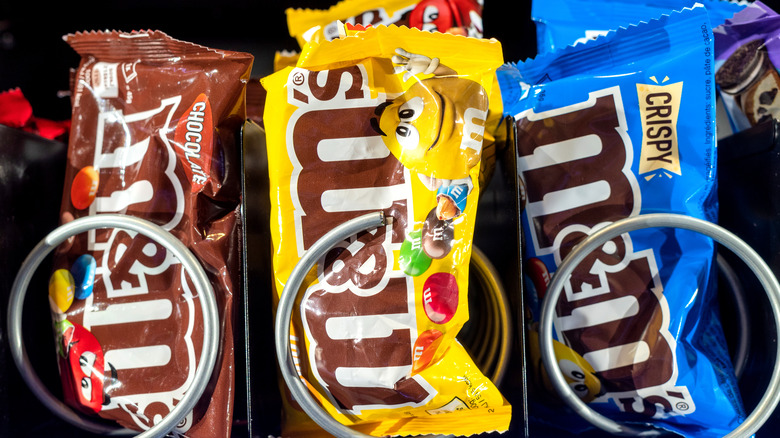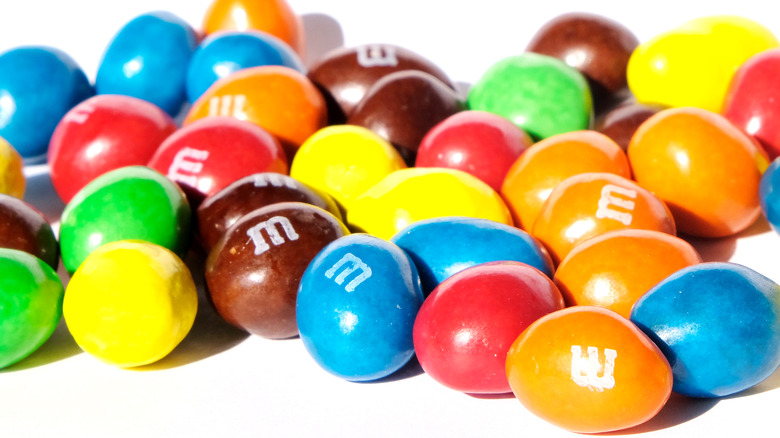Here's Why Not All M&M's Packages Have The Same Weight
It's hard to miss those little packages of M&M's in multiple varieties at the checkouts of pretty much every supermarket, retail store, and mini-mart. It's even harder to resist grabbing one or three. Everybody loves M&M's: They're the familiar candy of childhood — chocolaty, satisfying, and you always know exactly what you're getting.
That's what David Kestenbaum, host of the "Planet Money" podcast on NPR, thought when he grabbed two kinds of M&M's from his office building's candy counter one day. In an excerpt shared on NPR, Kestenbaum says he noticed something odd about his M&M's packages: They were different sizes. The listed weight of his regular chocolate M&M's was 1.69 ounces, but his Peanut Butter M&M's weighed 1.63 ounces. It's a fraction of a difference, but he couldn't help but wonder why there would be any difference at all between two seemingly same-sized bags of candy?
Kestenbaum decided to investigate, reviewing his hypotheses with candy company experts, marketing professionals, and even a chemical engineer. The surprising answer was ultimately revealed in a cryptic email from the M&M's creator, Mars, Incorporated.
M&M's let slip the reason for the weight difference
Mars, Inc., the confectionery giant which makes popular candies like Snickers, Twix, and M&M's, is known for the secretive family that owns it and the tight grip it keeps on trade secrets, according to Business Insider. It's no surprise when David Kestenbaum shares in his podcast "Planet Money" (in an excerpt on NPR) that the company was not very responsive to his emails. Mars, Inc. did provide one detail, however, that led Kestenbaum to the reason for inconsistent weights between varieties of M&M's packages.
Kestenbaum had explored a few theories about the weight difference: Perhaps ingredients in one flavor were more expensive, or the same number of candies go in each bag no matter how big each piece is. These ideas didn't pan out, but a brief email response from Mars, Inc. finally shed some light. They wrote, "All Mars products are designed to be 250 calories or less per portion." According to the M&M's brand site, there are several flavors of M&M's including Peanut Butter, Pretzel Chocolate, and Caramel Chocolate. The varied ingredients mean a different nutritional makeup for each flavor — but because the company wants to cap the calories of a single-serving bag at 250, that means some flavors get fewer candies in each bag. So while snackers might feel short-changed by a lighter-weight bag of M&M's, they can rest assured that they're still getting a comparable amount of calories no matter which flavor they choose.

